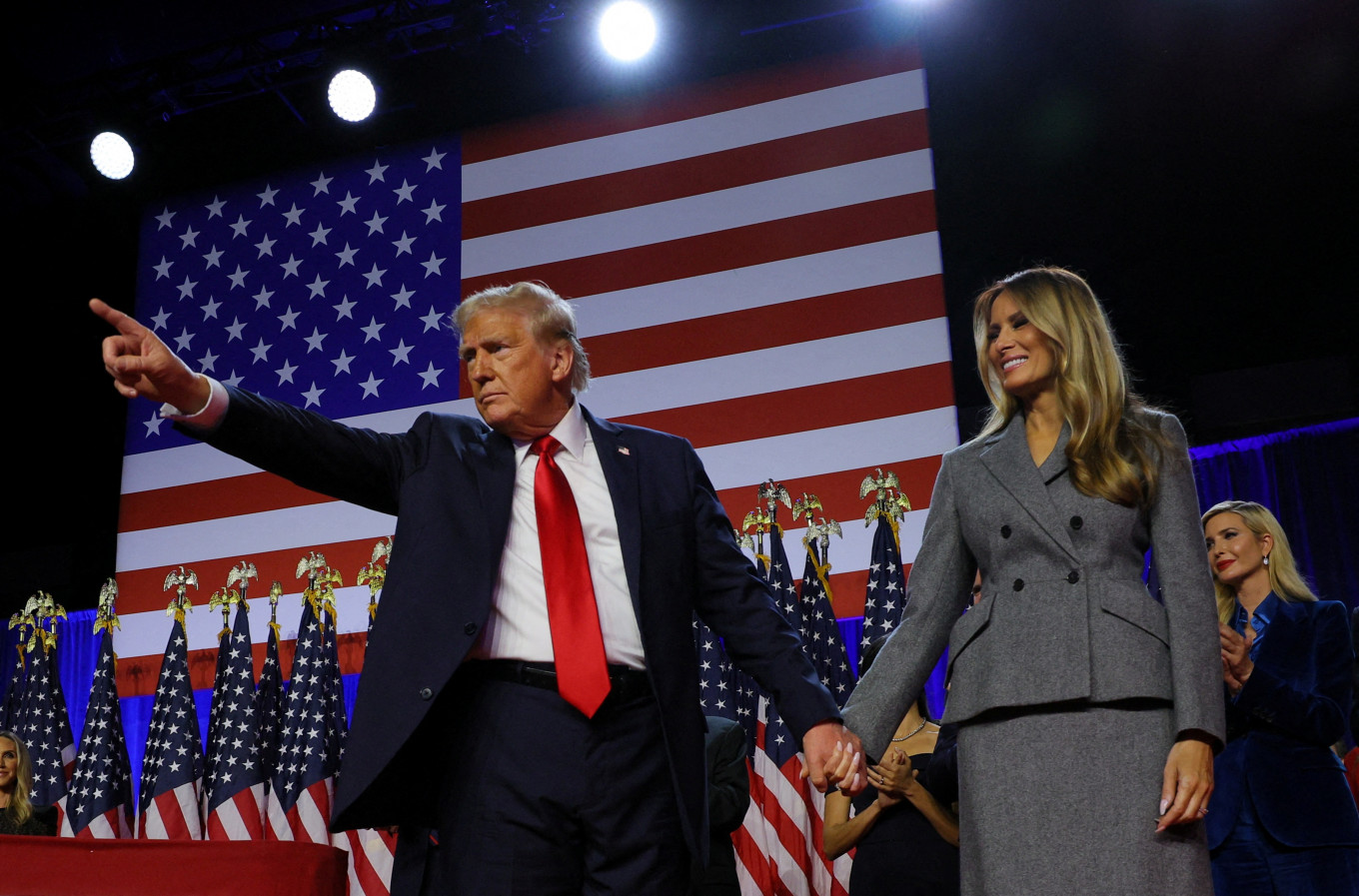Popular Reads
Top Results
Can't find what you're looking for?
View all search resultsPopular Reads
Top Results
Can't find what you're looking for?
View all search resultsGlobal trade à la Trump
Change text size
Gift Premium Articles
to Anyone
U
nited States president-elect Donald Trump played the fear card on the economy and won his second term. Now it is apparent that he intends to do the same for the world.
Just months before his inauguration, Trump announced that he would impose heavy tariffs on the US’ three largest trading partners, Canada, Mexico and China. The large tariffs are aimed at implementing his economic agenda and delivering his campaign promises to “put America first”.
There is little doubt that he will refrain from his major tariff plan when he takes office. After all, this is not something new from his administration. In his first term, Trump already gained a bad reputation by creating a divided global economy through his slogans of self-interested America.
According to thinktank The Brookings Institution, Trump increased tariffs on various imports from China, from solar panels to washing machines, resulting in a total of US$79 billion in tariffs in 2019. This has made US a notorious partner in trade agreements while forcing US firms and consumers to pay the lion’s share of the tariffs.
This time, Trump may find that the world is better prepared for his hawkish trade policies. The global economy, which has survived the COVID-19 pandemic, wars and the squeeze of the US-China rivalry, has become deeply polarized and countries have increasingly focused on their own self-reliance.
This is evident when we observe the recent dispute between the Indonesian government and Apple. The government has banned sales of the iPhone 16 on the grounds that the US tech giant does not comply with local content rules and is reluctant to build production facilities, despite the fact that Indonesia, which has the largest population in Southeast Asia, is one of its major markets.
The government also rejected Apple’s later offer to invest US$100 million to build production facilities, arguing that the amount of investment still lacked “principles of fairness”, considering the larger investments in other countries in Southeast Asia despite their possessing smaller markets.
In a well-functioning free trade regime, Indonesia’s protectionist maneuver against Apple would not be acceptable. Apple’s decision to focus its supply chain on Vietnam, Thailand and India while expecting sales from Indonesia’s large market is acceptable. No firm should be restricted in trading its goods and services across international borders, as long as it benefits consumers.
But in an increasingly polarized world, where leaders like Trump gain popular support, countries moving toward protectionism is inevitable. If Trump can put America first, there is no reason for President Prabowo Subianto or other national leaders not doing the same for their countries.
If Trump is set to implement high tariffs for the US’ most important trading partners, he should brace for retaliatory acts from other countries.
But the protectionism trend will not be good for the world in the long run. It will discourage international trade and interdependence, which have been the backbone of peace and prosperity.
Rather than unilaterally take action against each other, governments and business leaders must enter negotiating rooms and work on better solutions for their disagreements.
Apple, for example, may learn that the Indonesian government does make exemptions for the local content regulations for priority sectors like electric vehicles or renewable energy. The government has brought down the local content requirement for renewables to a minimum of 25 percent from the previous 40 percent for solar power projects and 30 percent for geothermal plants.
To accelerate local production and the adoption of EVs, the government has eased the local content regulation and allowed foreign EV manufacturers to be exempted from the minimum 40-percent local content requirement until 2026, as long as they agree to build their manufacturing plants in the country.
The future of global trade may be grim after Trump comes to power. But in the meantime, governments and businesses should be able to assess their own needs and opportunities to make things work a little better for them.











